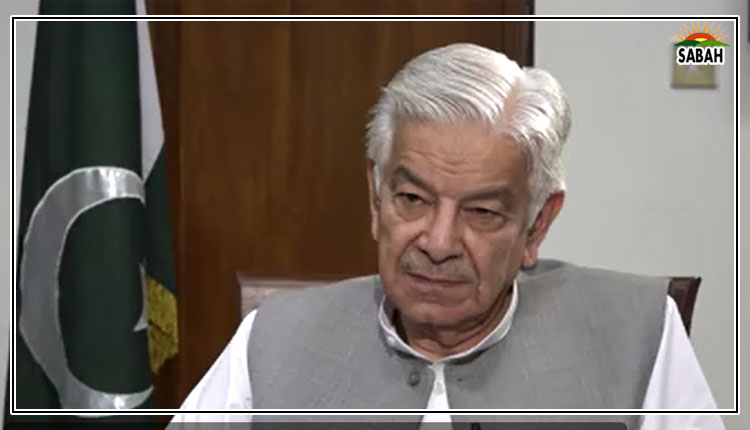Pakistan’s imperative for pragmatic diplomacy and economic resilience…Sayyeda Aqsa Sajjad
Within the complex framework of international geopolitics, recent developments most notably the outcomes of the Xi-Biden summit highlight the necessity for nations such as Pakistan to reevaluate their economic and foreign policy approaches. The evolving dynamics within the Asia-Pacific region and the prominent competition between major powers, notably the United States and China, necessitate a comprehensive and forward-looking strategy.
The summit between Xi and Biden, taking place within the context of a recognised strategic competition between China and the United States, offered a glimpse into the dynamic nature of the global order as it continues to evolve. Both heads of state underscored the importance of collaboration amidst the complexities of their divergent perspectives, thereby establishing a framework characterised by prudent interaction. The insights gleaned from this summit hold significant relevance for countries like Pakistan, as they navigate the intricacies of regional dynamics.
Within the framework of the current dynamics of great power competition, it is evident that the United States has unequivocally exhibited a proclivity towards aligning with India. Consequently, the South Asian region confronts a notable realignment of power dynamics. The salient lesson that emerges from the current circumstances faced by Pakistan is undeniably evident requiring a critical reassessment of its diplomatic priorities being an imperative course of action. Attempting to balance relations between the US and China may have limited impact. Instead, it is evident that a pragmatic approach that prioritises the enhancement of regional partnerships, specifically with India, arises as a strategic necessity.
The enduring tensions between Pakistan and India, which have been sustained by deep-rooted animosities, require a reassessment in the light of evolving geopolitical dynamics. The realignment of diplomatic ties with India is in accordance with the prevailing global pattern of fostering cooperative interaction and ensuring stability within the region. Pakistan has a unique opportunity to actively contribute to the ongoing dynamics by placing emphasis on fostering economic and diplomatic relations with its neighbouring country.
The Gwadar Port holds immense vitality within Pakistans strategic framework, serving as a pivotal component in both its economic and geopolitical spheres. The imperative to harness the geostrategic importance of Gwadar assumes utmost importance.
In the realm of economic affairs, it is important to prioritise the attainment of internal stability, political stability, anti-corruption measures and economic reforms. These elements play a crucial role in shaping the trajectory of a nations development and its standing within the global community. By focusing on these fundamental aspects, countries can foster an environment conducive to sustainable growth, good governance and enhanced international cooperation. Given the prevailing economic challenges, it is the need of the hour to devise a comprehensive approach aimed at enticing foreign investments and fostering sustainable growth. The establishment of a stable political environment serves as the fundamental pillar upon which economic prosperity and global credibility are built.
In the light of the ongoing dynamics of great power competition, Pakistan finds itself in a position of strategic contemplation regarding its role in the world. In this context, the diversification of alliances presents itself as a prudent and astute approach for the country to navigate the complex web of global relations. In addition to the bilateral relationship
between the United States and China, it is crucial to cultivate robust diplomatic connections with other key actors such as Russia, various European nations and countries in the Middle East. This strategic approach serves as a safeguard against the inherent unpredictability of global power dynamics.
Furthermore, it is necessary to acknowledge the crucial role that strategic communication assumes in the sphere of international relations. Pakistan must adopt a proactive approach in effectively communicating its priorities, thereby demonstrating its unwavering dedication to fostering regional stability, promoting sustainable economic growth and strengthening diplomatic cooperation.
The insights derived from the recent summit between President Xi and President Biden serve to propel Pakistan towards a trajectory of strategic realignment. In order to effectively navigate the complex dynamics of great power competition, it becomes inevitable to engage in a nuanced and intricate balancing act. This entails placing significant emphasis on fostering regional partnerships, strategically leveraging valuable assets such as the Gwadar Port, implementing comprehensive economic reforms and prioritising the establishment of stable governance structures.
By adopting such a multifaceted approach, nations can enhance their ability to navigate the intricate web of international relations and effectively respond to the challenges posed by great power competition. The capacity of Pakistan to effectively respond to these evolving dynamics will undoubtedly influence its position within the international arena, thereby playing a vital role in fostering regional stability and bolstering economic resilience.
Courtesy The Express Tribune












